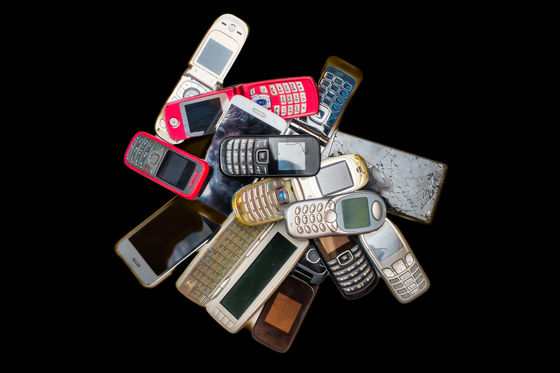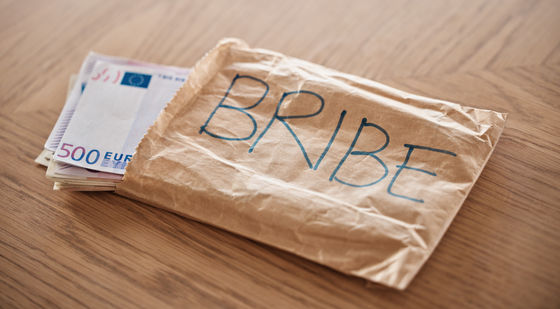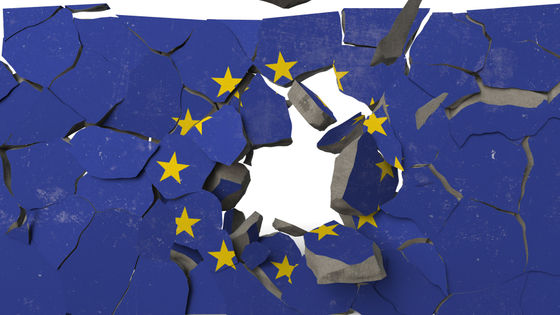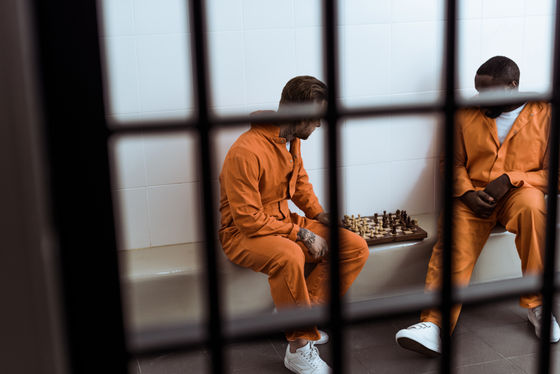Criminals make huge profits from EU carbon trading fraud

In order to reduce greenhouse gas emissions such as carbon dioxide, which are a major cause of climate change, the EU has introduced
Watch It Burn - The Atavist Magazine
https://magazine.atavist.com/watch-it-burn-france-europe-carbon-fraud-scam-vat-betrayal/
One of the masterminds behind the massive cross-border carbon fraud is Gustav Daphne, who was interviewed under a false name. In 2006, Daphne was in prison for a different fraud case. When he heard that the carbon emissions trading scheme born out of the Kyoto Protocol was going to be introduced in the EU, he decided to use the scheme to commit fraud after his release.
Daphne soon became a millionaire and was hailed by society as the 'Prince of Carbon.' But behind the scenes was another conman, Gregory Zaoui, known to his peers as 'The Brain' for coming up with the scheme. Zaoui told Aguirre, 'If Daphne was a prince, then I was a king.'
The carbon fraud that Zaoui came up with was modelled on the mobile phone 'value-added tax (VAT) fraud' that Zaoui had originally been involved in. In the EU, goods imported and exported between member states are exempt from VAT, but VAT fraud is when fraudsters take advantage of this by pocketing the VAT they have extorted from consumers instead of paying it to the authorities.

Like Daphne, Zaoui was inspired by his fellow prisoners to start an environmental business. After his release, he called
In France, sellers are required to collect VAT each time an EUA is bought and sold, but because no added value is generated during the distribution of the EUA, buyers can receive a refund of the VAT paid at the time of purchase.
Zaoui came up with the 'carbon version of VAT fraud' by applying this mechanism and the VAT fraud mentioned above to EUAs purchased VAT-free from outside France, adding VAT to them, selling them to Powernext, and secretly receiving a VAT refund.
Believing he could make a sure profit, Zaoui tried to team up with a woman named Christiane Melgrani, who was in charge of a fraud ring in Marseille, but just as he was ready to do so, Melgrani was arrested on unrelated charges, and Zaoui lost access to the funds he had deposited in an account in Melgrani's name.
With his patron gone, Zaoui next approached a man named Kevin El Ghazouani with a fraud scheme. El Ghazouani was a longtime friend of Zaoui's and had also been his benefactor, paying his bail when he was in prison.

El Ghazouani and Zaoui were persuaded by the promise of a 50/50 split of the profits, and together they set up a paper company in 2007. El Ghazouani recruited fictitious personnel from poor people who were willing to lend their names in exchange for a lump sum of money to create the appearance of a company, while Zaoui, using his knowledge from starting various companies, registered their company with the French authorities and Powernext as a securities firm capable of conducting international transactions.
But Zaoui's plan hit another snag when, in the late summer of 2007, he tried to log into his company account and was told his password was incorrect and the login failed.
Zaoui then confronted El Ghazouani, the only other person who knew the password, to find out what was going on. El Ghazouani then confessed that he had made an overly aggressive investment, but the business was no longer viable, so he gave up control and paid Zaoui 80,000 euros (approximately 13.5 million yen) as his share.
Although the loss of the company he had been preparing was a blow, Zaoui, who trusted his friendship with El Ghazouani, reluctantly agreed and began to search for new patrons, one of whom was Daphne, who had fled to Israel while on parole from a French prison and was now free.
Zaoui approached Daphne, whom he had known through a mobile phone VAT fraud, saying he needed money to start a new business, but Daphne, who said she had left fraud behind and wanted to become a horse owner, refused.
With no other choice, Zaoui scraped together some hard money and started afresh, and was very successful as he had planned. As word spread among criminals that this fraud scheme could be profitable, fraudsters, including Mergrani, who had been released from prison, flocked to the EU carbon market. Some of these criminals even funneled money to terrorist organizations, and documents listing VAT profits were reportedly found in the Pakistani cave where the Islamic extremist terrorist

In the summer of 2008, with the scam finally getting underway, Zaoui got a call from a man he and El Ghazouani knew, named Yigal Abikzar. 'Do you know El Ghazouani is making a fool of you?' Abikzar told Zaoui, according to court documents.
Abikzar said that El Ghazouani had not sold the company he co-founded with Zaoui, and was continuing to commit the carbon fraud that Zaoui had invented. Moreover, one of his co-conspirators was Daphne, who had rejected Zaoui's proposal. In other words, the story that Daphne had retired from fraud was a complete lie.
Daphne claims that the company was founded by her and another person while she was in prison, and that it was hers from the beginning, but she has not revealed the name of the co-founder. Aguirre speculates that El Ghazouani was the person who founded the company with Daphne while she was in prison.
In addition, Daphne and her accomplices maintained paper companies used in the mobile phone VAT fraud, giving them ample access to funds while in prison. Zaoui believes that El Ghazouani, blinded by greed, betrayed him and Daphne.
By June 2009, French authorities had become aware of rampant VAT fraud in the carbon market but failed to implement any meaningful measures beyond suspending EUA trading for two days and announcing changes to the VAT regime. Meanwhile, the French carbon market collapsed overnight amid media reports of huge amounts of public money being stolen from the French treasury.

When the issue came to light, Daphne had already fled from France to Israel, but the Israeli police arrested her on a separate crime unrelated to the carbon fraud, and asked her if she wanted to be deported to France or be sexually abused in an Israeli prison. After Daphne arrived in France, she was accused of carbon fraud, and El Ghazouani and Zaoui were arrested one after the other.
Zaoui initially thought that he would avoid prosecution if he provided information about El Ghazouani and Daphne, but he ended up standing trial alongside the men who had betrayed him.
In May 2017, the trial of Crépuscule, the company used by Daphne and others in the fraud case, began, and El Ghazouani was sentenced to seven years in prison, Daphne to nine years, and Zaoui to six years. In addition, El Ghazouani and Daphne were fined 1 million euros (approximately 170 million yen), and Zaoui was fined 300,000 euros (approximately 50 million yen).

When Aguirre asked if the fraud had affected the EU's efforts to fight climate change, Daphne said: 'I'm not saying that fraud is a good thing, but without the fraud there would have been zero carbon trading.'
Zaoui was released after three years in prison, but was banned from starting any new businesses and was required to pay a portion of his income to the French government until he had paid off his fine. Zaoui then wrote a book about carbon fraud, gave a talk show, and ran for office as a politician, but lost.
Although Zaui's parents have passed away and he is estranged from his wife and children, he is free from the fear of imprisonment and told Aguirre that 'freedom is priceless.'
Related Posts:
in Note, Posted by log1l_ks







